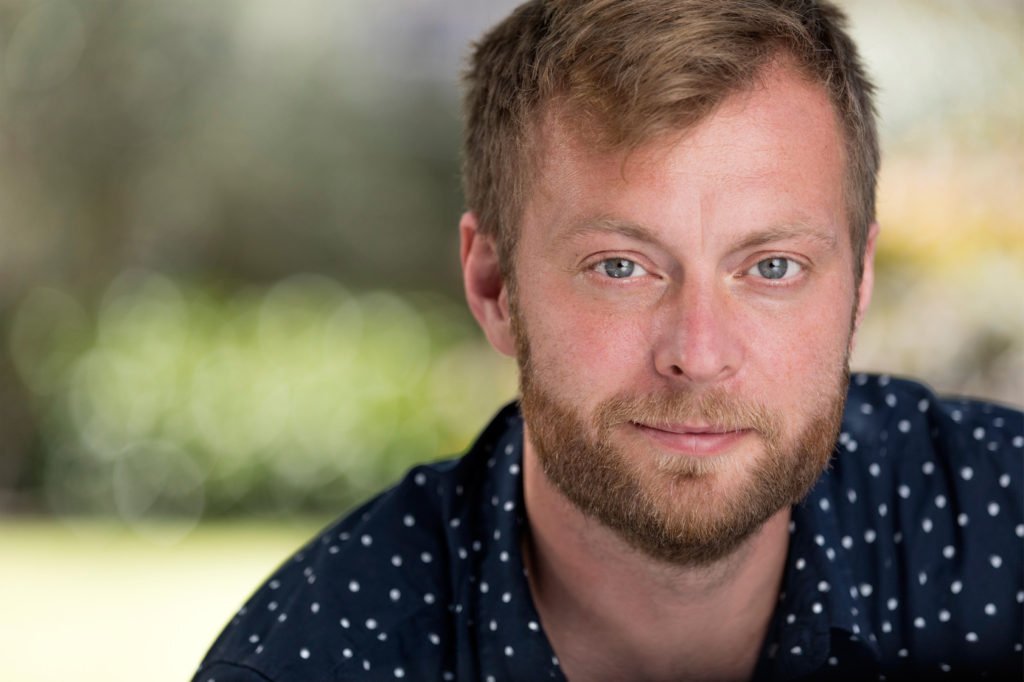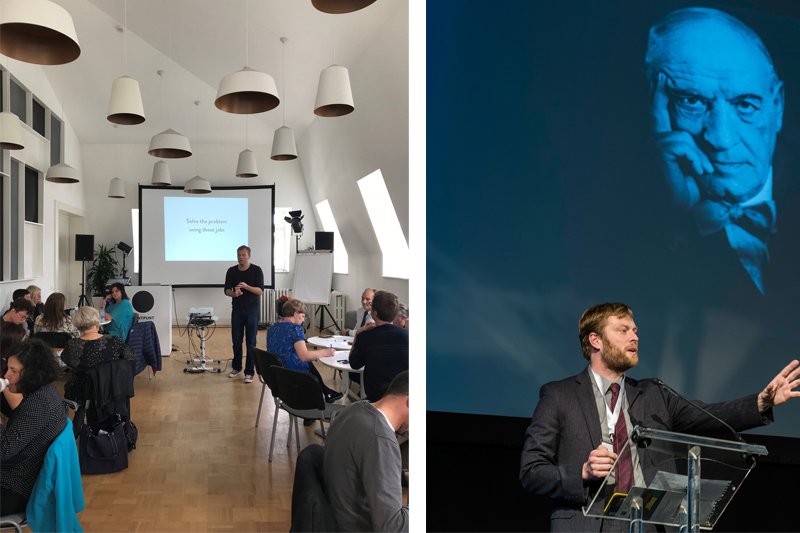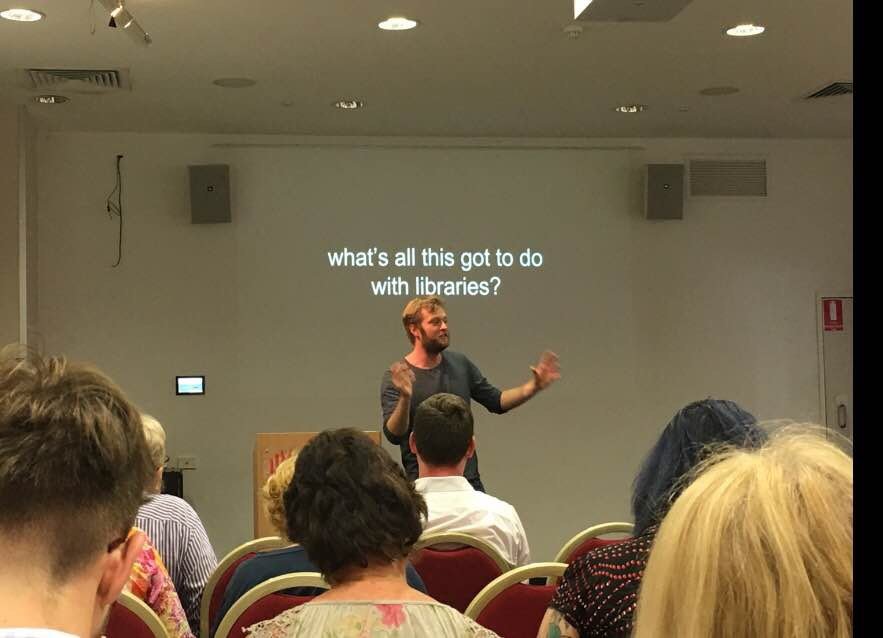15% off eLearning, up to 20% off virtual courses - use code: EARLY1225USA
8 October 2018 | Updated on 3 January 2019
In the spotlight: Matt Finch
A couple of months ago we launched our ‘in the spotlight’ blog series, which takes a look at some of our customers’ stories and how they’re using their qualifications in their day-to-day roles. This...

A couple of months ago we launched our ‘in the spotlight’ blog series, which takes a look at some of our customers’ stories and how they’re using their qualifications in their day-to-day roles. This month we chatted to Matt Finch.
So, Matt, tell us a bit about yourself – what do you do, where are you based, what industry do you work in?
I consult on strategy, innovation, and knowledge management for healthcare, law, higher education, the media, and the public sector. I’ve worked all over the world – from the UK to Australia, New Zealand, New York, and even rural Mississippi! I use games, challenges and creative activities to get people to think in an open-ended way, surface new ideas and turn them into practical, effective programmes and operations in their organisation. When an organisation needs to engage a wider community in a more playful way, I devise large immersive events such as science festivals, live zombie battles for kids and teens, and even a citywide burlesque event celebrating marriage equality in Auckland, New Zealand.
The aim of my work is to create activities where participants can surprise you – seeking new ideas and turning the best ones into reality. This open-endedness can be very challenging as there’s a lot of uncertainty, but that’s part of the excitement. I also get to work with an unusual mix of professionals, which keeps it interesting!
Which qualifications did you do with ILX? And how did you do your training with us?
I did the PRINCE2® Foundation & Practitioner online Plus Pack. Because I travel so much, it’s hard to commit to a classroom course, so I chose to study via e-learning instead. The online setting gives real structure to your study in a way that measures your progress and reinforces your learning. Take the games, for instance – they weren’t just fun, they helped to sustain my interest, and I found that they gave me the extra confidence I needed, because the game scores told me where I was in terms of my knowledge. As someone whose job involves making games and activities, I also found the way these games were integrated into the learning really interesting.
When you’re juggling multiple projects, studying becomes just one more thing to do on your checklist, so having an online environment to work from makes it easy to refresh your knowledge and check in with your progress. I’d really recommend it as I thought the course was well designed and well delivered… plus I got a good grade! Overall, it was a really great experience.

How do you feel that the frameworks you learned have helped you in your day-to-day work?
For me, one of the best things about PRINCE2 is that it gives you a structure to apply to your projects. If you’re working in a fairly open-ended environment like mine, it offers a common terminology and a process which can be applied in almost any circumstance.
The terminology is especially useful because, even if an organisation doesn’t fully implement the methodology, PRINCE2 is so well-recognised that people generally understand what you’re talking about; the vocabulary becomes just as useful as the methodology itself. I sometimes find myself speaking with supreme court judges one day and drag queens the next, but using this terminology gives you a common way of communicating and making decisions that everyone can understand, no matter what their background.
The PRINCE2 environment also gives you a good starting point for discussing new ideas. Some organisations know that they need to go through a change, but they already have set procedures and ways of doing things. So, they need to challenge themselves, but that challenge needs to be structured, and PRINCE2 gives you a way of achieving this. It helps organisations to manage their stage-by-stage progress towards their goal, and it means that you can end up doing quite radical things with even the most traditional of organisations.
I came from an academic background but wanted to use my skills to make a difference in the wider world. Most of my work involves helping to bring about change in a community or institution, and project management provides tools and techniques for controlling these changes, which is what led me to getting a formal qualification with ILX.
One of the great joys for me is that I can go from advising a health board on patient-centred care, to wrangling performers, to restructuring a university department all as part of the same career. It’s a massive adventure really, doing lots of different things on a daily basis.
As for the most challenging aspect, the question of creativity and surprise can be really tricky; the goals can be quite abstract, and you don’t always know where things are going to lead. The unknown is always a bit scary, and trying to move forward into a future we can’t fully see requires a degree of commitment because it’s about building trust.
What’s one of your favourite projects that you’ve worked on?
I had a two-year role as Creative-in-Residence at the State Library of Queensland in Australia, where my role was to bring people together, so we could spot new ideas, test them, and implement them in a way which would become part of the institution’s culture.
An Artist-in-Residence spends time with an organisation and then makes a piece of artwork – a sculpture or a painting or a song – based on their experience. A Creative-in-Residence uses the organisation itself as the material for change: you help the different teams and individual staff members from the front desk up to C-level to create new programmes, products, and services.
One of the products we created was a workshop called Library Island, a very open-ended idea-generating game which allowed participants to explore difficult questions around organisations operating in times of civil disobedience, natural disaster, budget cuts, or political unrest. We were able to take this workshop around the world and use it with medics, museum workers, and allied health professionals. I’ll be running bespoke Library Island projects in Brussels and Scandinavia this autumn.
The residency benefited from having the structure of PRINCE2 behind me – the organisation used it for large-scale projects, and I was getting informally acquainted with the PRINCE2 environment at the time. PRINCE2 structured the implementation of our bright ideas as we made them operational, delivering statewide science festivals, new partnerships with Australia’s state broadcaster, the ABC, and even a digital offer where you could take a selfie and it would flip your face into a historic photo from the library’s archive. The residency spotted opportunities and possibilities by engaging in conversations across departments and ranks, then turned them into real wins for the organisation.

So, looking to the future, what are your career ambitions? Do you have a five-year plan?!
Alongside my PRINCE2 qualifications, I’ve been developing my scenario-planning skills, as well as working on systemic rollout of major changes – from implementing a new service model at the University of Southern Queensland, to supporting the introduction of a patient-centred care approach at Brisbane’s Metro South Health Board.
In the future, I expect to be taking on ever larger strategic challenges, with a focus on operationalising and embedding big ideas across a whole sector or organisation.
Find out more about Matt on LinkedIn and via his website.